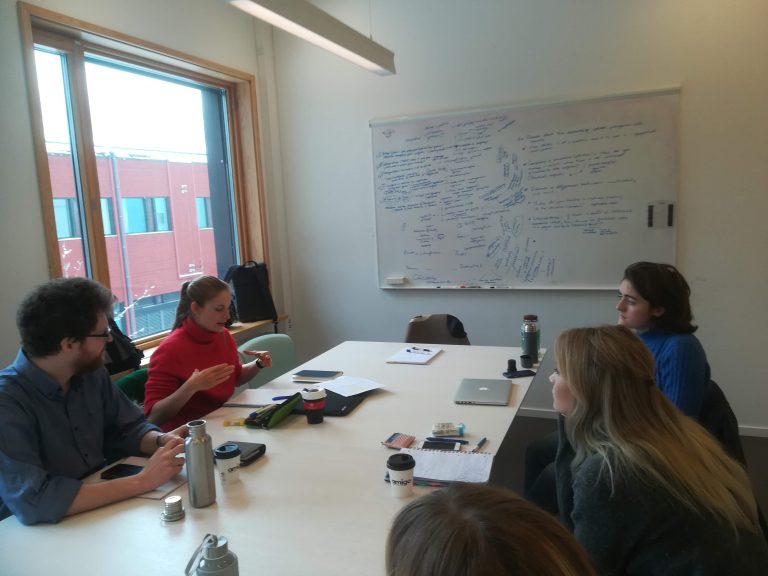The course Conflict, democracy and facilitation is ongoing for first year students within the Environmental Communication programme, and some second year students including myself volunteered to facilitate two literature discussions.

The theme of the first “peer learning” discussion was focused on understanding what kind of social situation it is to be called “conflict”, and under what conditions, and why, conflicts appear. In the group discussion I facilitated, students first explained how they understood concepts in the readings and their questions. During the discussion, they related those theoretical concepts from the literature to examples from the media, protests, politics, cultural differences and environmental issues.
The Conflict literature for the week discussion were “structuralist” and “interactionist”
perspectives. Some central concepts were that conflict host both constructive and destructive aspects, what was trust in interaction, mutuality (Hallgren och Ljung), escalation of conflict (Kriesberg and Dayton), or constitutive expectancies (Garfinkel) among others. Here some references:
Kriesberg, L. and Dayton, B. W. (2017). Constructive conflicts: From escalation to resolution. Rowman & Littlefield. 5th edition.
Hallgren och Ljung. 2015(2005). Ch 5: Conflicts and conflict management. In Hallgren and Ljung:Environmental communication [Miljökommunikation]. Originally published inSwedish at Studentlitteratur 2005)
Watson, R. 2009.Constitutive practices and Garfinkel’s notion of trust: Revisited. Journal ofclassical sociology. Vol 9 Issue 4 p 475-499
